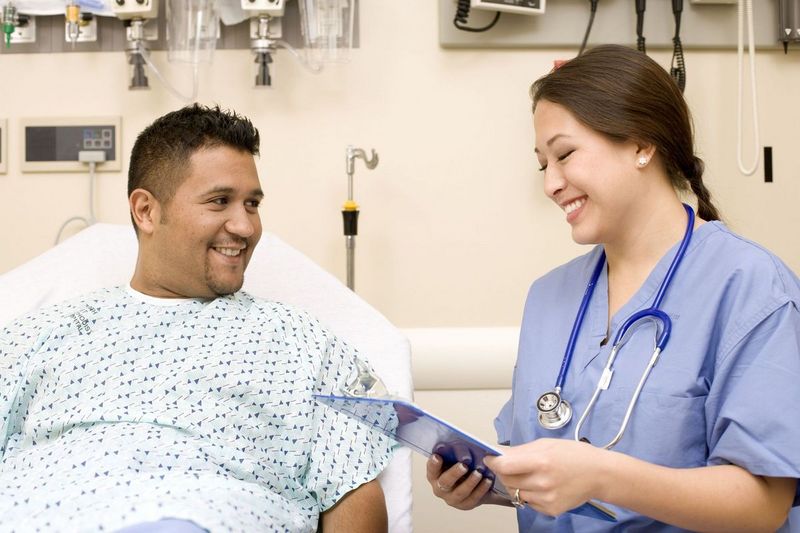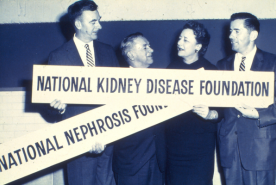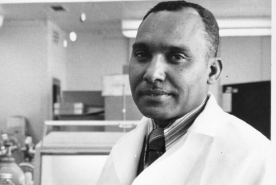September 23, 2015
by Jack Fassnacht
Don’t let the title of this article make you think my health care team didn’t do a good job of letting me know what to expect after my kidney transplant. They did. Or maybe I should say “they both did” because I’ve had two transplants and two health care teams. In 1989, I received a transplant courtesy of an excellent transplant team at the University of Chicago Hospital, and in 2005, I received a second kidney transplant from another superb team at Northwestern Hospital. I’m now over 10 years out from that second kidney transplant! But there were some surprises along the way, things I wish I had known, or appreciated more, before my transplants.
1. You need a team of doctors on your side. Most kidney transplant recipients have a nephrologist who monitors their kidney health. My nephrologist likes to see me every three or four months, even after 10 years. But you should also have other specialists on your health care team, including a dermatologist, a dentist and a general practitioner.
2. You may have to pre-medicate before visiting the dentist. Speaking of dentists, because I have a transplant and take immunosuppressant (anti-rejection) medications, I am at an increased risk for developing infections, including those in my mouth. Dental cleaning is generally recommended every six months for transplant recipients. Also, some transplant centers recommend pre-medicating (“dental prophylaxis”) before each dental visit. Talk with your health care team and dentist about this.
3. Don’t be a silent sufferer! I’ve had several health problems I thought would just go away but they didn’t, including diarrhea and gout. After my first transplant, I endured a long period of diarrhea, not knowing that it could be handled by changing my medications. I also went through another period of terrible foot pain not realizing it was connected to my kidney problems. Who thinks feet have anything to do with kidneys?! I finally mentioned it to my nephrologist who diagnosed it as gout and then gave me a prescription which eliminated the pain.
4. “Skinny fingers” is a good sign. I figured this one out myself. When my fingers are puffy, it means my kidneys are having a hard time eliminating fluids from my system, so I should slow down on my water and salt consumption.
5. Try minimizing exposure to germs, but don’t get carried away. Every transplant recipient is at an increased risk for developing infections after transplantation because of immunosuppressant medications, so avoiding exposure to germs makes some sense. But don’t get carried away. Common sense is the best policy. You did not have the transplant to live your life in a protective bubble! Good hand washing with antibacterial soap or using some hand sanitizer may be a good practice.
6. Cover up from the sun. Too much sun not only can cause skin problems, it tends to tire me out, which I blame on my medications. I admit I don’t like sunscreen (although I sometimes use it), but I do cover up by wearing hats and I limit my time in the sun.
7. Prescriptions can be changed. If you ask 10 transplant recipients what medications they are taking, you are likely to get 10 different answers! There is no one perfect set of medications for everyone. If you suspect a medication is causing you problems - see item 3 above – ask your doctor if you can change it.
8. Keep stress low. Keeping stress low is important for everyone, but especially so for transplant recipients. I’m convinced that stress has a bad effect on the body’s immune system, which can have serious consequences for us transplant recipients. Among my stress lowering strategies: reducing the amount of stuff in my life (because stuff requires maintenance); avoiding conflict; focusing on the positive; and finding a faith community.
9. You are not alone. By talking with other transplant recipients I’ve discovered that almost everything I’ve been through someone else has experienced. I’ve learned a lot, and felt much relief, in talking about my transplant with others.
And finally…
10. Transplantation is a gift! Donor organs are a precious gift, not to be squandered, so I try to live a healthy lifestyle, which includes eating right and exercising gently but often.


















